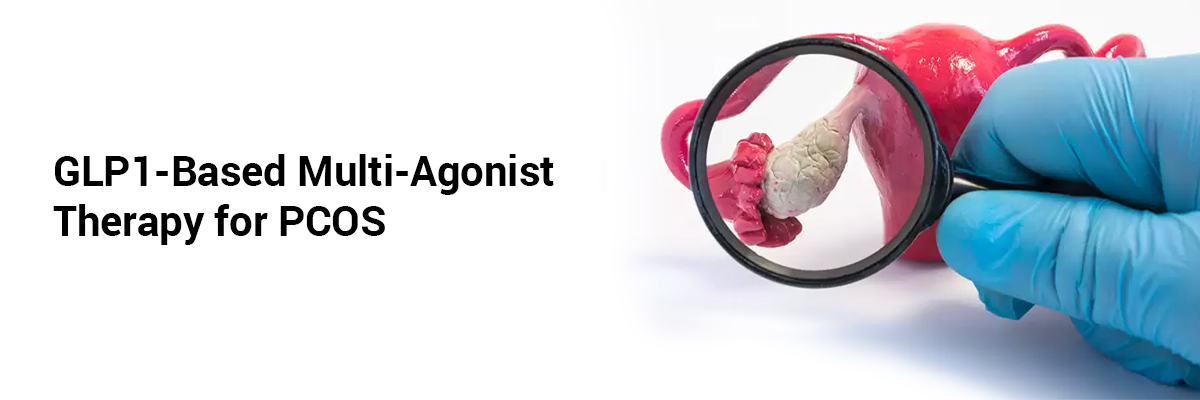
GLP1-based multi-agonist therapy for PCOS
Polycystic ovary syndrome (PCOS) is a complex condition characterized by reproductive and metabolic disturbances, including oligo-/anovulation, hyperandrogenism, and polycystic ovaries. It is frequently associated with metabolic complications such as obesity, insulin resistance, and type 2 diabetes, which can significantly impact the health of affected women. Despite advances in treatment, therapies remain largely symptomatic and offer limited relief for both metabolic and reproductive issues.
A recent study offers new understandings of the potential of glucagon-like peptide-1 (GLP1)-based multi-agonists in managing PCOS. Researchers examined the effects of three GLP1-based therapies—GLP1/Estrogen (GLP1/E), GLP1/gastric inhibitory peptide (GLP1/GIP), and GLP1/GIP/Glucagon—on metabolic and reproductive traits in two distinct mouse models of PCOS that had varying levels of metabolic and reproductive trait expression, delivering a broad basis for comparison with standard metformin treatment.
The study revealed that GLP1/E outperformed other multi-agonists and metformin in addressing the metabolic complications of PCOS. GLP1/E also improved ovarian cyclicity in a PCOS model with ovulatory dysfunction without inducing unwanted estrogenic effects on the uterus. The proteomic analysis further showed changes in hypothalamic pathways in response to GLP1/E, suggesting that its brain-targeting actions may contribute to its differential efficacy between PCOS models.
These findings show the potential use of GLP1-based multi-agonists, particularly GLP1/E, as a personalized therapeutic approach for managing the metabolic and reproductive challenges of PCOS.
Source: Sánchez-Garrido MA, et al. Nat Commun. 2024 Oct 1;15(1):8498. doi: 10.1038/s41467-024-52898-y.













Please login to comment on this article